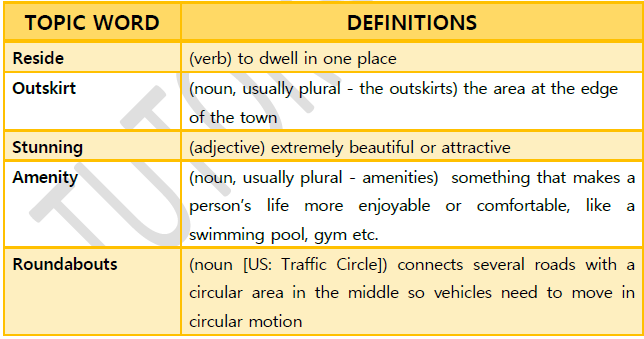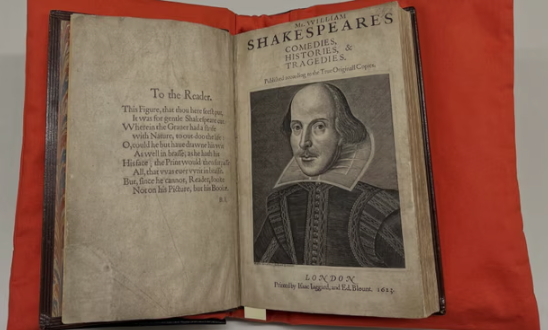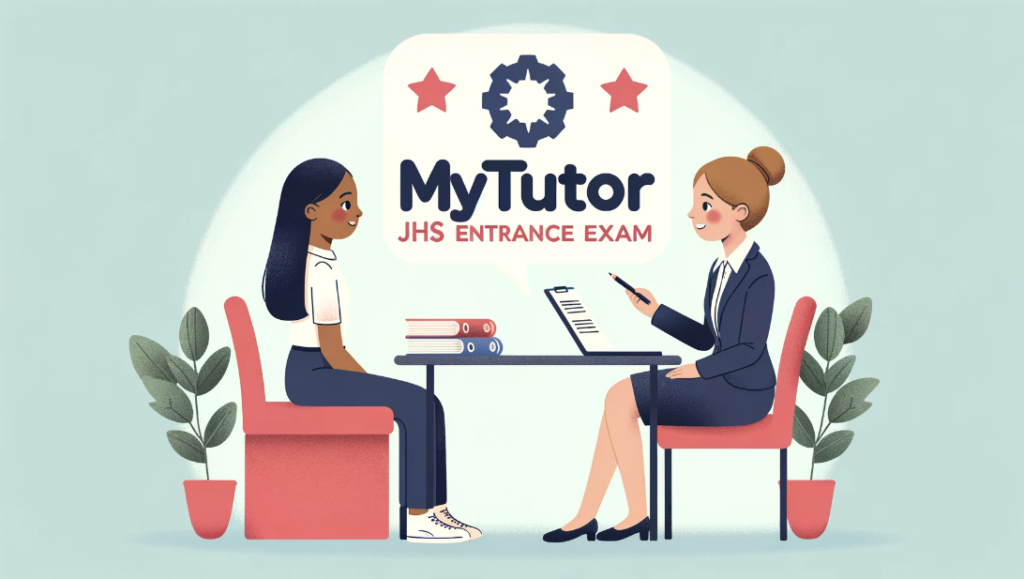English Site
※ 全ての講師が対応します。
※ 中学入試 英語面接対策について
※ 志望校の英語試験対策をご希望の場合は、ぜひご連絡ください。過去問など参考になる資料をご提供いただけましたら、それを基に問題を作成し、カスタマイズした対策コースをご提案させていただきます。
▮ レッスンコース名 : JHS Entrance Exam Interview Course
(中学受験 英語面接試験対策コース)
▮ レッスン数 : 10~30 レッスン
受講者の希望で必要な分だけ受講してください。
受講者のレベルで進行速度が異なります。
▮ 教材 : オリジナル教材(想定される質問をたくさん用意しています)
その他、受講者自身で質問を用意して講師へお渡しされても構いません)
▮ レッスンの進め方: 講師が出す質問に対して受講者が回答します。その回答を基に、講師が添削やアドバイスを行いながらレッスンを進めていきます。予習の有無に関わらず、受講者の参加は歓迎されます。
出題が予想される質問 ― 初級~中級
Can you tell me about yourself?
Why do you want to attend our school?
What are your strengths and weaknesses?
What is your favorite book and why?
Can you describe a challenge you’ve faced and how you overcame it?
Who is your role model and why?
What are your hobbies?
What do you want to be when you grow up?
What subjects do you like and dislike?
How do you handle stress?
What makes you happy?
Tell me about a time you showed leadership
What is your favorite animal and why?
Describe a memorable event in your life.
How do you work in a team?
What book are you currently reading?
What do you think about teamwork?
Can you tell me about a project you are proud of?
What is your favorite subject in school and why?
How do you plan to contribute to our school community?
What do you think is the most important quality in a friend?
Describe a time when you helped someone.
What are your future goals?
How do you manage your time effectively?
Tell me about a time you overcame a fear.
What is your greatest achievement?
How do you stay motivated?
Can you tell me about your elementary school life?
What was your favorite activity in elementary school?
How have you grown since starting elementary school?
Are you applying to any other schools besides ours?
How did you find the written exam?
How do you plan to commute to school if you are accepted?
How do you interact with your friends?
What do you value most in your friendships?
Do you have someone you admire?
上級 - 難関中学向け For elite middle schools
※ きちんと論理立てて自分の意見(オリジナリティー)を述べているかが評価されます。
You are evaluated on how well you can logically articulate your own opinions and originality.
Lesson 1. 「宇宙船に乗れないと死んでしまう。でもあと一人しか乗れない場合、あなたはどうしますか?」
If you don’t get on the spaceship, you will die. But if there’s only room for one more person,
what would you do?
Lesson 2. 「もし時間を5分だけ戻せるとしたら、どの瞬間に戻りたいですか?」
If you could go back in time for just 5 minutes, to which moment would you return?
Lesson 3. 「無人島に持っていくなら、どんな一冊の本を選びますか?」
If you were stranded on a deserted island, which one book would you choose to bring?
Lesson 4. 「もし動物になれるとしたら、どの動物になりたいですか?その理由も教えてください。」
If you could become any animal, which animal would you choose to be? Please explain why.
Lesson 5. 「あなたが選ぶスーパーパワーは何ですか?そのパワーをどのように使いますか?」
What superpower would you choose to have? How would you use that power?
Lesson 6. 「もし100年後の世界を一日だけ体験できるとしたら、どんなことをしたいですか?」
If you could experience the world 100 years from now for just one day, what would you want to do?
Lesson 7. 「もし歴史の中で一つの出来事を変えられるとしたら、何を変えますか?その理由は?」
If you could change one event in history, what would it be? And why?
Lesson 8. 「あなたにとって理想の世界はどのようなものですか?その世界の特徴を教えてください。」
What does your ideal world look like? Please describe the characteristics of this world.
Lesson 9. 「もし一日だけ別の人になれるとしたら、誰になりたいですか?その理由も教えてください。」
If you could be someone else for just one day, who would you choose to be? And why
Lesson 10. 「宇宙旅行に行くチャンスがあったら、行きたいですか?それとも地球に残りたいですか?理由も教えてください。」
If you had the chance to travel to space, would you want to go? Or would you prefer to stay on Earth? Please explain your reasons.
Lesson 11. 「もし何でも願いを一つだけ叶えられるとしたら、何を願いますか?」
If you could have one wish granted, what would you wish for?
Lesson 12. 「もし歴史の中で一日だけ生きることができたら、どの時代に戻りたいですか?その理由は?」
If you could live for just one day in any historical period, which era would you choose to go back to? Why?
Lesson 13. 「もし世界のどこでも無料で旅行できるとしたら、どこに行きたいですか?その理由も教えてください。」
If you could travel anywhere in the world for free, where would you go? Please explain why.
Lesson 14. 「将来、どんな職業に就きたいですか?その職業を選んだ理由は何ですか?」
What profession do you want to pursue in the future? What are the reasons for choosing that profession?
Lesson 15. 「もし一つの技能を瞬時に習得できるとしたら、何を選びますか?その理由も教えてください。」
If you could instantly learn one skill, what would it be? Please explain why.
Lesson 16. 「もし過去に一つのメッセージを送ることができるとしたら、何歳の自分に何を伝えますか?」
If you could send a message to yourself in the past, what age would you choose and what would you say?
Lesson 17. 「世界を変えることができるなら、どのように変えたいですか?その理由も教えてください。」
If you could change the world, how would you change it? Please explain your reasons.
Lesson 18. 「もし異世界に行くことができるとしたら、どのような世界に行きたいですか?その理由も教えてください。」
If you could go to a different world, what kind of world would you like to visit? Please explain why.
Lesson 19. 「もし一つの法律を作ることができるとしたら、どんな法律を作りますか?その法律を選んだ理由は?」
If you could create one law, what law would you make? Why did you choose that law?
Lesson 20. 「もし一日だけ過去に戻ることができるなら、どの日に戻りたいですか?その日を選んだ理由は何ですか?」
If you could go back to the past for just one day, which day would you return to? What is the reason for choosing that day?
Lesson 21. 「もし一つの言語を話せるようになるとしたら、どの言語を選びますか?その言語を選んだ理由は何ですか?」
If you could become fluent in one language, which language would you choose? Why did you choose that language?
Lesson 22. [1日だけ国のリーダーとしての立場にいるとしたら、市民と世界全体に利益をもたらすためにどのような政策や変更を実施しますか?]
If you were the leader of a country for a day, what policies or changes would you implement to benefit your citizens and the world at large?
Lesson 23. 「1週間だけ他の誰かの人生と入れ替わることができるとしたら、誰の人生を選び、その経験から何を学ぶと思いますか?」
Suppose you could switch lives with someone for a week. Whose life would you choose, and what do you think you would learn from the experience?
Lesson 24. 「ある一つの世界的な問題(貧困、気候変動、差別など)を解決できると仮定します。どの問題に取り組み、どのように対処しますか?」
If you could eliminate one global issue, such as poverty, climate change, or discrimination, which one would you address, and how would you tackle it?
Lesson 25. 「自分の人生の中で1日を繰り返し体験できるシナリオを想像してみてください。どの日を選び、それはなぜあなたにとって重要なのですか?」
Imagine a scenario where you could relive one day of your life repeatedly. Which day would you choose, and why is it significant to you?
Lesson 26. 「太陽系内のどの惑星に行くチケットがもらえるとしたら、どの惑星に行き、そこで何を発見したり体験したりしたいと思いますか?」
If you were offered a ticket to travel to any planet in our solar system, where would you go, and what would you hope to discover or experience there?
Lesson 27. 「あらゆる言語を話し、理解できる魔法の力を持っていると仮定します。この能力を使って世界をより良い場所にするためにどのように活用しますか?」
Suppose you wake up one day with the ability to speak and understand all languages. How would you use this newfound skill to make the world a better place?
Lesson 28. 「自分の愛する人と100人の見知らぬ人を助ける選択を迫られた場合、どちらを選びますか?その理由は何ですか?」
If you had to choose between saving a loved one or saving a hundred strangers, what would you do and why?
Lesson 29. 「もし、世界中の言語を話し理解できる能力があったら、それを使って世界をどのように良くするために活用しますか?」
If you had the ability to speak and understand all the languages in the world, how would you use this skill to make the world a better place?
Lesson 30. 「もし、過去の歴史上の有名な人物に会う機会が与えられたら、誰に会い、どのような質問をしますか?」
If you were given the opportunity to meet any historical figure, who would you choose to meet, and what questions would you ask them?
Lesson 31. 「本や映画の架空の世界に住むことができるとしたら、どの世界を選び、なぜその世界を選びますか?」
If you could live in a fictional world from a book or movie, which world would you choose to live in and why?
Lesson 32. 「もし、世界中の人々が祝う新しい祝日を作ることができるとしたら、それは何と呼ばれ、人々はどのように祝うと思いますか?」
If you could create a new holiday that everyone in the world would celebrate, what would it be called, and how would people celebrate it?
Lesson 32. 「もし、他の惑星の宇宙人と会話できるとしたら、彼らに何を尋ね、地球について知ってほしいことは何ですか?」
If you could have a conversation with an alien from another planet, what would you ask them, and what would you want them to know about Earth?
Lesson 34. 「もし、自国の教育制度を1つ変えることができるとしたら、どのような変更を行い、なぜそれが重要だと思いますか?」
If you could change one thing about the education system in your country, what change would you make, and why do you think it’s important?
Lesson 35. 「もし、瞬時に1つの世界的な問題(飢餓、貧困、疾病など)を解消する力があるとしたら、どの問題を解消するか、そしてそれをどのように解決しますか?」
If you had the power to instantly eliminate one global issue (e.g., hunger, poverty, disease), which issue would you choose to eliminate, and how would you do it?
Lesson 36. 「もし、歴史のどの時代でも未来でも生きることができるとしたら、いつ、どこで生きることを選び、どのような生活を送りますか?」
If you could live in any era of history, past or future, when and where would you choose to live, and what kind of life would you lead?
Lesson 37. 「もし、動物とコミュニケーションを取る能力が与えられたら、どのようにして動物と環境のために活用しますか?」
If you were given the ability to communicate with animals, how would you use this ability to benefit animals and the environment?
































